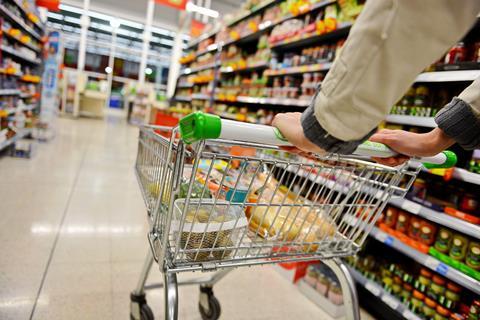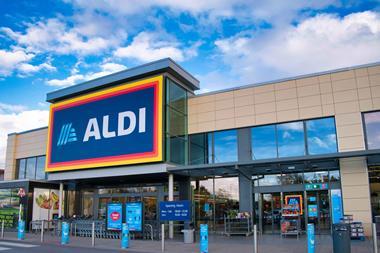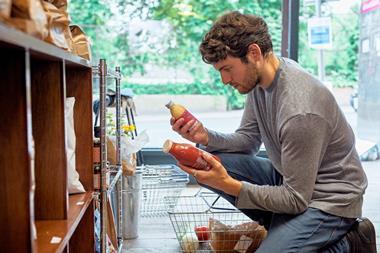Concerns that the food market is not competitive enough have been quashed, but grocers have been told by the competition regulator to make it easier for shoppers to compare prices.

The Competition and Markets Authority (CMA), which has been looking at various aspects of the grocery market as prices climbed during the cost-of-living crisis, said it found “problems with unit pricing, which may affect consumers’ ability to compare products”.
The issue was highlighted as the CMA cleared grocers of any suspicion that they are not competing fiercely enough.
The CMA said falling industry operating profits indicated “that rising costs have not been passed on in full to consumers”.
It said that “evidence to date indicates high food price inflation has not been driven by weak retail competition” but that, as input prices fall, the regulator will monitor retailers ”to ensure that people benefit from competitive prices”.
Among the price concerns raised today were missing or incorrect price information, different unit metrics being used for the same type of product and the way unit prices for products on promotion are displayed.
Food retailers, including variety store businesses, have been urged to take steps including ensuring “that they unit price all their products of the same type using the same metric” and “give unit prices for products on promotion for all types of promotions where this is feasible”.
The call includes the pricing of loyalty-programme goods and applies both in store and online.
The CMA said it had found instances of non-compliance with the Price Marking Order 2004 (PMO), “particularly among some variety stores”.
It added that it has written to “certain grocery retailers” to highlight particular concerns. It has recommended to the government that changes are made to the PMO, but in an open letter urged retailers to act now.
The CMA also said it will look at competition in individual product categories – including milk and bread – or across the wider grocery supply chain, but that is “not an indication of any provisional concerns that competition for these products is ineffective”.
CMA chief executive Sarah Cardell said: “With so many people struggling to feed their families, it’s vital that we do everything we can to make sure people find the best prices easily.
“We’ve found that not all retailers are displaying prices as clearly as they should, which could be hampering people’s ability to compare product prices. We’re writing to these retailers and warning them to make the necessary changes or risk facing enforcement action.
“The law itself needs to be tightened here, so we are also calling on the government to bring in reforms.
“We’ve also looked at how competition is working across the grocery retail market more widely. The overall evidence suggests a better picture than in the fuel market, with stronger price competition between all of the supermarkets and discounters.
“In the next phase of our work, we will examine competition and prices across the supply chain for the product categories we’ve identified. We’ll also continue to monitor the situation to ensure that competition remains effective as input costs start to fall.”
British Retail Consortium chief executive Helen Dickinson said: ”We welcome the CMA report, which confirms that, despite the challenges caused by rising costs throughout the supply chain, the grocery market remains as competitive and efficient as ever.
“Supermarkets have been working hard to support their customers through the cost-of-living crisis and will be reflecting on the CMA’s recommendations on unit pricing.
“The CMA itself notes that ‘many of these problems stem from the rules themselves’, and retailers stand ready to support proposed changes to the unit pricing rules.
“As noted in the report, supermarket margins have remained extremely tight as they try to support their customers and absorb the worst of the rising costs in the supply chain.
“In the last few months, some of these pressures have begun to ease, such as with global commodity prices and the weakness of the pound, and we are now seeing competition driving down the price of key staples.
“This fierce competition between British supermarkets has also been a key reason why the UK continues to deliver among the cheapest groceries in Europe.”


























No comments yet